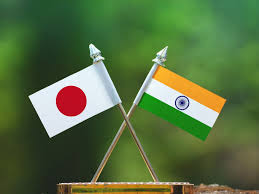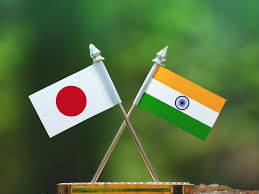
The economic impact of the novel coronavirus pandemic and the current tensions between with China is forcing startups in India to try and woo Japan Inc. for investment.
While a large part of India still under the pandemic related restrictions thereby suppressing economic activities, a recent legislative change that seeks to restrict the amount of investments from China into Indian companies has also threatened to close down one of the major sources of funding for Indian startups.
Organizing a series of online pitches organized by India's National Association of Software and Service Companies, which is an industry body also known as NASSCOM, were among the efforts being made to woo Japanese investors.
“Japan, by any stretch of the imagination, is one of the top candidates [to enter India]," said Rakesh Mishra, founder of electric powertrain startup Entuple E-Mobility, during his presentation. Following pitches, the viewers were allowed to submit questions and request individual meetings.
The first such pitching event was organized in Tokyo, Japan last year by NASSCOM which reflected the growing relationship between the two countries. And since the pandemic hit India resulting in lockdowns and restrictions to economic activities, strengthening that relationship has assumed greater importance as funding got Indian startups were being squeezed.
Companies have also been affected by the growing tensions between India and China since China was one of the major investors in India startups in recent years.
In a change in foreign investment policies, the Indian government made it mandatory or investment from countries that share a border with India to get approval from the government prior to being invested in the country. That list also includes China. The main aim of the new measures was to prevent "opportunistic takeovers" of Indian companies, weakened by the pandemic hitting the economy, by foreign companies and investors. This new measure has also now assumed importance after the souring of relations with China over a border row in which 20 Indian soldiers were killed in a brief fight with Chinese soldiers.
"In the last 12 to 18 months, a lot of Chinese VCs or Chinese companies want to throw money at Indian companies, and that has inflated a lot of deals," said Chua Kee Lock, CEO of venture capital firm Vertex Holdings. Startup valuations in India will be hit harder than in other countries because of an anticipated drop in Chinese investment because of the new regulations, he said.
Several million dollars in funding from local investors and Japanese medical imaging company Nobori in May was raised by DeepTek, a Pune-based medical startup.
"At this juncture, I won't be interacting with any Chinese investors," said co-founder Ajit Patil, while noting that Chinese companies tend to invest in larger startups.
According to figures compiled up to June 15 by Indian research firm Tracxn., a total $17.9 billion so far this year has been raised by Indian startups. But that figure includes a $13.7 billion investment by Reliance Jio Platforms, the telecoms business of billionaire Mukesh Ambani. If that investment is reduced from the total, the remaining amount will be significantly lower than the $15.1 billion that was raised by Indian startups last year. This year however has a long way to go because India’s financial year ends on March 31st 20201
"Many parts of Southeast Asia and India are ahead of Japan in going digital," said Hiroshi Eguchi, who leads strategic investments at Toppan. "India is also attractive as a market."
(Source:www.asia.nikkei.com)
While a large part of India still under the pandemic related restrictions thereby suppressing economic activities, a recent legislative change that seeks to restrict the amount of investments from China into Indian companies has also threatened to close down one of the major sources of funding for Indian startups.
Organizing a series of online pitches organized by India's National Association of Software and Service Companies, which is an industry body also known as NASSCOM, were among the efforts being made to woo Japanese investors.
“Japan, by any stretch of the imagination, is one of the top candidates [to enter India]," said Rakesh Mishra, founder of electric powertrain startup Entuple E-Mobility, during his presentation. Following pitches, the viewers were allowed to submit questions and request individual meetings.
The first such pitching event was organized in Tokyo, Japan last year by NASSCOM which reflected the growing relationship between the two countries. And since the pandemic hit India resulting in lockdowns and restrictions to economic activities, strengthening that relationship has assumed greater importance as funding got Indian startups were being squeezed.
Companies have also been affected by the growing tensions between India and China since China was one of the major investors in India startups in recent years.
In a change in foreign investment policies, the Indian government made it mandatory or investment from countries that share a border with India to get approval from the government prior to being invested in the country. That list also includes China. The main aim of the new measures was to prevent "opportunistic takeovers" of Indian companies, weakened by the pandemic hitting the economy, by foreign companies and investors. This new measure has also now assumed importance after the souring of relations with China over a border row in which 20 Indian soldiers were killed in a brief fight with Chinese soldiers.
"In the last 12 to 18 months, a lot of Chinese VCs or Chinese companies want to throw money at Indian companies, and that has inflated a lot of deals," said Chua Kee Lock, CEO of venture capital firm Vertex Holdings. Startup valuations in India will be hit harder than in other countries because of an anticipated drop in Chinese investment because of the new regulations, he said.
Several million dollars in funding from local investors and Japanese medical imaging company Nobori in May was raised by DeepTek, a Pune-based medical startup.
"At this juncture, I won't be interacting with any Chinese investors," said co-founder Ajit Patil, while noting that Chinese companies tend to invest in larger startups.
According to figures compiled up to June 15 by Indian research firm Tracxn., a total $17.9 billion so far this year has been raised by Indian startups. But that figure includes a $13.7 billion investment by Reliance Jio Platforms, the telecoms business of billionaire Mukesh Ambani. If that investment is reduced from the total, the remaining amount will be significantly lower than the $15.1 billion that was raised by Indian startups last year. This year however has a long way to go because India’s financial year ends on March 31st 20201
"Many parts of Southeast Asia and India are ahead of Japan in going digital," said Hiroshi Eguchi, who leads strategic investments at Toppan. "India is also attractive as a market."
(Source:www.asia.nikkei.com)





